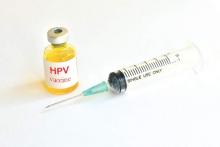Over half, 56% of adolescents aged 13-17 years in the United States had received at least one dose of HPV vaccine, based on 2015 data from the Centers for Disease Control and Prevention’s 2015 National Immunization Survey-Teen.
From 2014 to 2015, the percentage of boys who had received at least one dose of HPV vaccine increased from 42% to 50% and the percentage in girls increased from 60% to 63%. In 2015, 35% of all adolescents (28% of boys and 42% of girls) received at least three doses of HPV vaccine.
Despite the increases, “coverage with at least one HPV vaccine dose was lower than coverage with Tdap and MenACWY,” wrote Dr. Sarah Reagan-Steiner of the CDC and colleagues. During the time of the study, vaccination with at least one dose of the quadrivalent meningococcal conjugate vaccine (MenACWY) increased from 79% to 81% for all adolescents.
“These gaps in coverage demonstrate ongoing missed opportunities for HPV vaccination at visits when other recommended vaccines are administered,” the researchers said. “Strong clinician recommendations for HPV vaccination, and coadministration of the first HPV vaccine dose with Tdap and MenACWY vaccine at age 11-12 years during the same visit would improve HPV coverage,” they added.
Clinician resources to promote conversations with parents and adolescents about vaccination are available on the CDC website.
The findings were published Aug. 25 in the Centers for Disease Control and Prevention’s Morbidity and Mortality Weekly Report (MMWR 2016;65:850-8).


